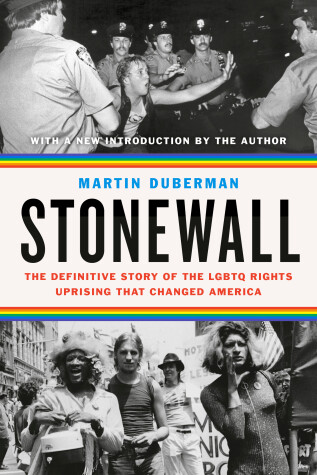
The definitive account of the Stonewall Riots, the first gay rights march, and the LGBTQ activists at the center of the movement.
“Martin Duberman is a national treasure.”—Masha Gessen, The New Yorker
On June 28, 1969, the Stonewall Inn, a gay bar in New York's Greenwich Village, was raided by police. But instead of responding with the typical compliance the NYPD expected, patrons and a growing crowd decided to fight back. The five days of rioting that ensued changed forever the face of gay and lesbian life.
In Stonewall, renowned historian and activist Martin Duberman tells the full story of this pivotal moment in history. With riveting narrative skill, he re-creates those revolutionary, sweltering nights in vivid detail through the lives of six people who were drawn into the struggle for LGBTQ rights. Their stories combine to form an unforgettable portrait of the repression that led up to the riots, which culminates when they triumphantly participate in the first gay rights march of 1970, the roots of today's pride marches.
Fifty years after the riots, Stonewall remains a rare work that evokes with a human touch an event in history that still profoundly affects life today.
Much broader and deeper than one riot, which is why it’s so important to know history. The most disheartening part is how much momentum was lost because the antiwar, Black, feminist, gay and lesbian movements were intent on excluding each other. How much more progress could have been made?
Also, this, by way of history repeating:
“For the better part of a week, the police, with little or no provocation, literally assaulted antiwar demonstrators and yippies alike, spilling so much blood, and bashing onlookers, reporters, and “freaks” so indiscriminately, that TV images of their rampaging brutality produced national revulsion.”
That’s the Chicago Democratic Convention, 1968.
Reading updates
-
Started reading
-
3 June, 2020:
Finished reading
-
3 June, 2020:
Reviewed
